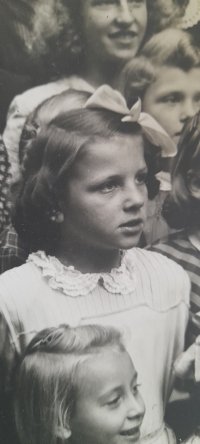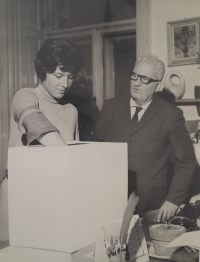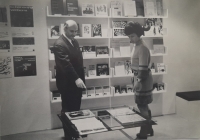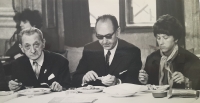Censorship? They used to drill holes in vinyl records so they couldn’t be played

Download image
Hana Pechová, née Tvrdá, was born on 14 June 1937 in Prague into the family of military doctor Otakar Tvrdý and his wife Marta, a teacher by profession. Both parents came from Most and her father was from a Czech-German family. Hana Pechová recalls her childhood in Prague during the Protectorate and the Kühn Choir, in which she performed throughout her childhood and adulthood. Music was an important part of her life. She studied musicology at Charles University in Prague, graduating in 1960. At that time she had been married for two years and had a family. After school, she joined the Supraphon publishing company, where she worked until 1998. She started at Supraphon as a clerk in the cultural and world department (promotion), then worked as a manager of the record club, and in the 1980s she moved into marketing. She recalls the censorship interference of the state and the attempts to wiretap employees in the 1970s. She never joined the Communist Party, even though it would have brought her a better job. In 2023 she was living in Prague.

























